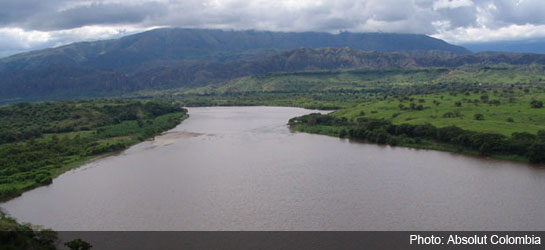
Colombia is among 10 countries joining a partnership with the World Bank to include the value of ecosystems in national economic indicators.
The partnership is based on work by the U.N. project “The Economics of Ecosystems and Biodiversity” (TEEB), which published a report last week documenting the relationship between the economy and the environment. TEEB’s report attempts to demonstrate the economic value of ecosystems so that policy-makers can better understand the long-term consequences of environmental damage.
TEEB uses the department of Choco, on Colombia’s Pacific coast, as an example of how these certifications could work. In Choco the soils are rich with gold and platinum, and certain communities choose to not lease their land to mining companies to avoid the environmental consequences of large-scale mineral extraction. Instead, these communities use their own, low-impact form of mineral extraction and sell the minerals under the FAIRMIND label, which ensures miners receive fair compensation for their product and use low-impact mining techniques.
In a press release the World Bank states that in the first five years of the partnership they will demonstrate how countries can quantify the value of ecosystems, incorporate these values into economic planning and develop practical guidelines that other countries can use.
World Bank Group President Robert B. Zoellick explained that the world’s loss of biodiversity is closely related to the value placed on ecosystems, and that if economic actors do not place a financial value on ecosystems biodiversity will plummet. Zoelick believes this partnership will “provide the ‘missing information’ on a country’s ‘natural capital’ to guide leaders in decision-making.”
The World Bank launched the project at the Convention on Biological Diversity in Nagoya, Japan, Thursday.

